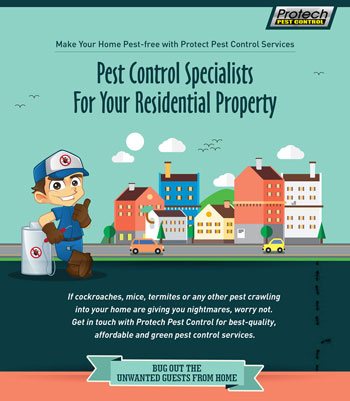The Keys Of Bug Control Pros! Unleash The Power Of Innovative Strategies And Say Goodbye To Pesky Parasites For Good
The Keys Of Bug Control Pros! Unleash The Power Of Innovative Strategies And Say Goodbye To Pesky Parasites For Good
Blog Article
Written By-Evans Dickson
Are you tired of depending entirely on sprays to take care of parasites in your house or office? While sprays can be effective, pest control specialists have developed sophisticated techniques that go beyond merely splashing chemicals.
These methods not just give extra efficient and lasting options, but likewise concentrate on reducing using hazardous pesticides. By exploring these innovative methods, you will certainly find an entire brand-new globe of insect control techniques that are not only efficient, yet likewise eco-friendly.
So, are you all set to take your pest control game to the next level?
Integrated Parasite Management (IPM)
If you're looking for an efficient and environmentally-friendly method to pest control, Integrated Bug Administration (IPM) is the solution you need. IPM focuses on long-lasting prevention and administration of pests, rather than simply relying upon chemicals. This approach considers the details demands and habits of insects, in addition to the surrounding environment.
By utilizing a combination of techniques such as biological control, environment control, and targeted chemical use, IPM aims to reduce the reliance on chemical treatments and minimize damage to non-target microorganisms.
One crucial element of IPM is keeping an eye on and determining insects properly. This involves regularly inspecting and evaluating the pest population, in addition to identifying the details varieties present. By comprehending the biology and behavior of pests, parasite control experts can establish targeted techniques to disrupt their life process and minimize their numbers.
An additional vital element of IPM is making use of non-chemical control methods whenever possible. This can consist of physical obstacles, such as setting up screens or sealing fractures and openings, to stop insects from getting in buildings. In addition, cultural practices, like correct cleanliness and waste administration, can assist get rid of bug food sources and reproducing grounds.
When pesticides are required, IPM focuses on utilizing them deliberately and as a last hope. best treatment for ants suggests choosing the least toxic and most efficient option, using it specifically and just to impacted locations, and following all safety and security standards. By minimizing pesticide use, IPM reduces the potential dangers to human health and the environment.
Biological Control
To further enhance the performance of Integrated Parasite Management (IPM), the next subtopic we'll explore is the technique of organic control. This technique makes use of all-natural predators or parasites to regulate insects.
Below are 4 essential aspects of biological control:.
1. https://docs.google.com/spreadsheets/d/1zA6UW_qu5mGfC4316jA-Wsi9YMNQiaBOPLqXz4M3-ms/edit?usp=drive_link of all-natural enemies: In this technique, useful bugs or microorganisms are introduced to the area infested with pests. These natural enemies victimize the parasites, helping to decrease their population.
2. Preservation of natural adversaries: Rather than introducing brand-new microorganisms, this technique focuses on creating a suitable setting for existing useful bugs. This can be accomplished via offering food, shelter, and water resources.
3. Enhancement: Here, the variety of all-natural adversaries is enhanced unnaturally by breeding and releasing them into the ravaged area. This assists to quickly minimize the pest populace.
4. Push-pull approach: This method incorporates repellents and attractants to manipulate the habits of bugs. Repellents push pests away from crops, while attractants entice them towards trap plants or locations where they can be easily controlled.
Environment Modification
Environment alteration plays a critical duty in insect control by changing the atmosphere to dissuade pest problems. By making changes to the physical features of a space, you can develop an inhospitable environment for insects, making it harder for them to make it through and thrive.
One typical technique of environment adjustment is getting rid of or minimizing possible food sources for parasites. This can consist of proper waste management, securing containers, and cleaning up food crumbs.
Additionally, eliminating or decreasing locations of standing water can assist manage pests like mosquitoes.
Transforming the landscape by trimming trees and bushes far from buildings can additionally stop insects from accessing your property.
https://www.pcgamesn.com/fortnite/animals-wildlife .
So there you have it - the sophisticated methods made use of by insect control professionals surpass just spraying chemicals. Integrated Parasite Management (IPM) incorporates different techniques to efficiently manage bugs, while biological control utilizes all-natural enemies to keep bug populaces in check.
Habitat alteration likewise plays a critical role in protecting against bug infestations.
Did you know that according to a study, applying IPM strategies minimized chemical usage by approximately 71%? This not only shields our health and wellness and the setting however also conserves cash over time.
